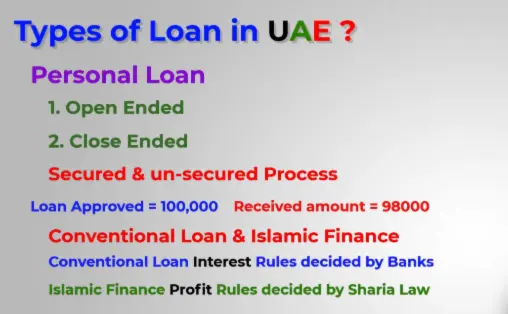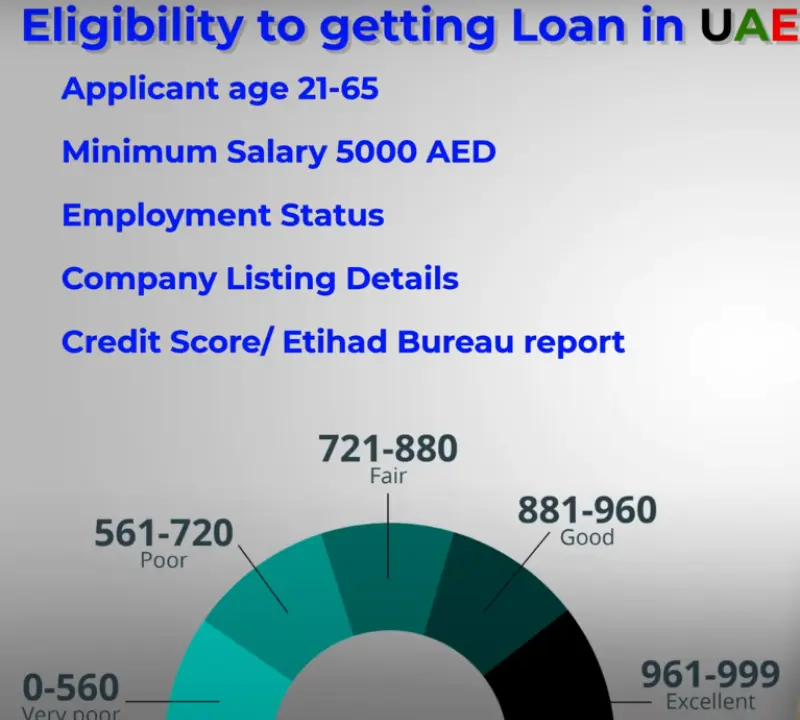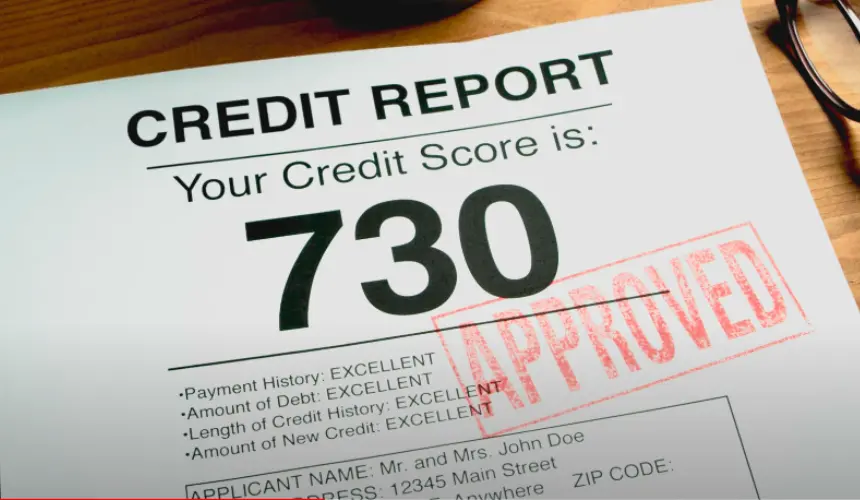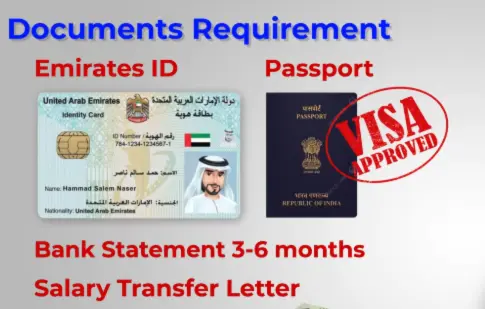Personal Loan in UAE: A Comprehensive Guide to Borrowing Options
Personal loans in the UAE are accessible for individuals to meet their financial needs. With competitive interest rates and flexible repayment options, these loans can be a smart choice for managing expenses or funding personal projects. Many people utilize personal loans for education, home improvements, or unexpected emergencies. Navigating the world of personal loans can seem overwhelming. Borrowers must understand the terms and conditions, such as repayment periods and fees. However, clear guidance can help individuals make informed decisions that suit their financial situations.
In the UAE, various financial institutions provide personal loans tailored to different needs and profiles. Understanding the options available can empower borrowers to secure a loan that aligns with their goals.
Understanding Personal Loan in UAE
Personal loans in the UAE are popular financial products offered by banks and lending institutions. They are unsecured loans, meaning there is no need for collateral. There are two main types of personal loan in the UAE. These are Open ended and Closed ended loans both secure and un-secure.

These loans can help with various needs, such as:
Borrowers can receive amounts ranging from AED 5,000 to AED 1,000,000, depending on the lender and the individual’s financial status.
Interest rates can vary significantly. Common rates range from 5% to 10% based on factors like credit score and loan term. The repayment period typically lasts from 6 months to 60 months.
Eligibility criteria often include:

Documentation is usually required, such as:
- Passport and visa copy
- Salary certificate
- Bank statements
It is essential for borrowers to read the terms carefully. Fees and penalties may apply for late payments or early repayment. Understanding these details can help borrowers avoid unexpected costs.
Personal Loan Eligibility in UAE
To qualify for a personal loan in the UAE, several factors come into play. Each lender has specific requirements, but there are common eligibility criteria that applicants need to consider.

Residency and Age Requirements
Most lenders require applicants to be a resident of the UAE. This means they must hold a valid residency visa.
Typically, the minimum age to apply is 21, while the maximum age limit is often around 60 for expatriates and 65 for UAE nationals.
It’s crucial for applicants to provide proof of residency and age through official documents like a passport and visa. Some lenders may have additional checks to verify the applicant’s residency status.
Income and Employment Stability
Lenders look for stable income and employment when assessing loan applications. A steady job with a reliable salary plays a large role in the eligibility process.
Most lenders require proof of income, often needing applicants to show payslips or bank statements from the last three to six months.
The minimum income requirement varies by lender but usually falls between AED 3,000 to AED 10,000 monthly. Those with multiple income sources may increase their chances of approval.
Credit Score Considerations
Credit scores are an important aspect of loan eligibility. Lenders typically check the applicant’s credit history to assess their financial behavior.

A higher credit score increases the chances of securing a loan with favorable terms. Generally, a score above 600 is considered acceptable in the UAE.
Applicants should obtain a copy of their credit report before applying. This allows them to identify any issues and improve their score if necessary. Addressing overdue debts or correcting inaccuracies can lead to better loan offers.
Applying for a Personal Loan
Applying for a personal loan in the UAE involves several key steps, including gathering necessary documents and understanding the application process. The following sections outline what is needed and how the process unfolds.
Documentation Required
To apply for a personal loan, several documents are required. These may include:

- Identification: A valid passport and UAE residence visa.
- Proof of Income: Recent salary slips or bank statements showing income.
- Employment Verification: A letter from the employer confirming employment status.
- Credit History: A credit report to assess creditworthiness.
Some banks may ask for additional documents, such as utility bills for proof of address. Having all necessary documents ready can speed up the application process.
Application Process
Almost all lenders in the UAE offer personal loan online apply facility to their borrowers. The application process for a personal loan typically follows these steps:
- Choose a Lender: Research different banks and financial institutions.
- Submit Application: Fill out the loan application form with personal and financial details.
- Documentation Submission: Provide the required documents to the lender.
- Credit Assessment: The lender reviews the application and credit history.
- Loan Offer: If approved, the lender presents a loan offer with terms and conditions.
Applicants should ensure they meet eligibility criteria, as this can affect approval chances.
Loan Approval and Disbursement
Once the application is approved, the lender will inform the applicant about the decision. The approval may take a few hours to a few days, depending on the lender and loan amount.
After approval, the loan agreement will be signed.
Disbursement of funds usually occurs shortly after the agreement is signed, often within a few days. Funds may be transferred directly to the applicant’s bank account.
It is important for borrowers to review the loan terms before accepting to understand repayment schedules and interest rates.
Interest Rates and Repayment
Interest rates and repayment options are important factors when considering a personal loan in the UAE. Understanding these can help borrowers make informed choices.
Interest Rate Types
In the UAE, personal loan interest rates can be fixed or variable. Knowing personal loan interest rate can help a borrower to take an informed decision. In any case, the borrower should always prefer obtaining low interest personal loans.
- Fixed Rates: These remain the same throughout the loan term. Borrowers can predict monthly payments easily, which makes budgeting simpler.
- Variable Rates: These can change based on the market. If interest rates rise, payments might increase, making it harder to budget.
Most lenders provide an Annual Percentage Rate (APR) that includes fees and charges, giving a clearer picture of the loan’s total cost. Borrowers should compare rates from different banks to find the best deal.
Repayment Terms and Conditions
Repayment terms for personal loans in the UAE usually range from 1 to 5 years. Shorter terms result in higher monthly payments but lower overall interest costs. Longer terms can ease monthly financial burdens but may increase total interest paid.
Lenders often have specific conditions, such as minimum and maximum loan amounts. They may also require proof of income and employment stability. Some lenders allow borrowers to choose their payment dates, which can help with scheduling payments more conveniently.
Early Repayment and Penalties
Many lenders in the UAE allow for early repayment of personal loans. This can save borrowers money on interest. However, some lenders may charge an early repayment penalty.
- Penalty Fees: These fees vary by lender and can be a percentage of the remaining loan balance. It’s crucial for borrowers to review the terms before agreeing to a loan.
Understanding the penalties helps borrowers decide if early repayment is a good option for them. It’s best to ask lenders about potential fees upfront to avoid surprises later.
Choosing the Right Lender
Selecting a lender for a personal loan in the UAE is essential. It is important to compare options, understand the terms, and consider the level of customer support offered.
Comparing Banks and Financial Institutions
When choosing a lender, look at both banks and non-bank financial institutions and make a rough draft of personal loan comparison. Each offers different loan products, interest rates, and terms.
- Interest Rates: Compare annual percentage rates (APRs) to find the best deal. Lower rates mean less money paid over time.
- Loan Amounts: Ensure the lender offers amounts that meet financial needs.
- Repayment Terms: Look for flexible repayment periods, usually ranging from 6 months to 5 years.
Research well-known banks along with smaller financial institutions. Smaller lenders might offer better rates or personalized services. Some of the most famous loans along with interest rates and processing fees UAE citizens can obtain are given in the table below:
| Lender | Minimum Salary Requirement (AED) | Interest Rates | Salary Transfer | Processing Fee |
| HSBC Personal Loan | 7500 | 6.99% | Yes | 1.05% |
| Mashreq Personal Loan | 5000 | 5.99% | Yes | 1.05% |
| FAB Personal Loan | 7000 | 5.95% | Yes | 1.05% |
| NBD Personal Loan | 5000 | 4.99% | Yes | 1.05% |
| Rak Bank Personal Loan | 5000-10000 | 5.49% | Yes | 2.50% |
| ADIB Personal Loan | 8000 | 5.99% | Yes | 1% |
| CBD Personal Loan | 8000 | 5.50% | Yes | 1% |
| HDFC Personal Loan | 5000-8000 | 10.50% | Yes | 2.50% |
Understanding the Fine Print
Carefully read loan agreements to avoid surprises later. Important details include:
- Fees: Be aware of application and processing fees.
- Prepayment Penalties: Some lenders charge fees for paying off loans early. Understand these costs to avoid extra charges.
- Late Payment Fees: Know the penalties for missed payments.
Before committing, clarify any unclear terms. Transparency is vital in loan agreements.
Customer Service and Support
Good customer service is crucial when choosing a lender. Financial decisions benefit from clear communication and support.
- Accessibility: Check if the lender offers support through phone, chat, or email.
- Response Time: Quick responses can help resolve issues faster.
- Reviews: Look for customer feedback about their experiences.
A lender who values customer service can make the borrowing process smoother. Personal loans are significant financial commitments, so having reliable support matters.
Potential Risks and How to Mitigate Them
Taking a personal loan in the UAE can come with risks. It’s important to understand them and know how to reduce potential problems.
High Interest Rates
Personal loans often have higher interest rates compared to other loans.
- Mitigation: Shop around for lenders and compare rates.
- Consider a loan with a fixed rate for more predictability.
2. Overborrowing
It’s easy to take out more than can be repaid.
- Mitigation: Assess personal finances carefully before borrowing.
- Use a loan calculator to understand monthly payments.
3. Hidden Fees
Some loans may include fees that are not clear at first.
- Mitigation: Read the fine print before signing.
- Ask the lender about any fees upfront.
4. Impact on Credit Score
Missing payments can hurt credit scores.
- Mitigation: Set up automatic payments to avoid delays.
- Keep track of due dates with reminders.
5. Short Loan Terms
Some loans require fast repayment.
- Mitigation: Look for loans with terms that fit budget needs.
- Consider longer terms if payments may be tight.
Personal loans can offer needed funds, but being aware of risks helps borrowers make informed decisions.
What are the minimum salary requirements for obtaining a personal loan in the UAE?
The minimum salary requirement for a personal loan in the UAE typically ranges from AED 3,000 to AED 5,000 per month. This amount can vary based on the bank or financial institution. Higher salaries may lead to larger loan amounts.
How can I calculate my personal loan eligibility in the UAE?
To calculate personal loan eligibility, individuals should consider their monthly income, existing debts, and the desired loan amount. Many banks provide online personal loan calculators for this purpose. These tools help estimate the maximum loan amount one can obtain based on their financial situation.
Is it possible to obtain a personal loan in the UAE without a salary transfer?
Yes, some banks may offer personal loans without a salary transfer. However, rates and terms might not be as favorable. Borrowers should check with individual banks for specific policies and requirements.
What documents are required to apply for a personal loan in the UAE?
Common documents required include a valid Emirates ID, proof of income, and bank statements. Some banks may also ask for employment verification letters. Preparing these documents in advance can speed up the application process.
Can expatriates access personal loans in the UAE on the basis of their Emirates ID?
Expatriates can access personal loans in the UAE using their Emirates ID. Banks often evaluate factors like income, credit history, and employment status. Different banks may have varying policies for expatriates.
What are the options for urgent cash loans in the UAE?
Options for urgent cash loans in the UAE include personal loans, payday loans, and credit card cash advances. Personal loans may provide lower interest rates. However, payday loans often have quick approval times but higher costs.







